Dosa to Noodles, Startup’s Robot Chefs Have Automated 3000 Kitchens in 22+ Countries
Mukunda Foods is a kitchen automation and robotics company based in Bengaluru, started by two classmates – Eshwar K Vikas and Sudeep Sabat. Their innovations have standardised 14 recipes.
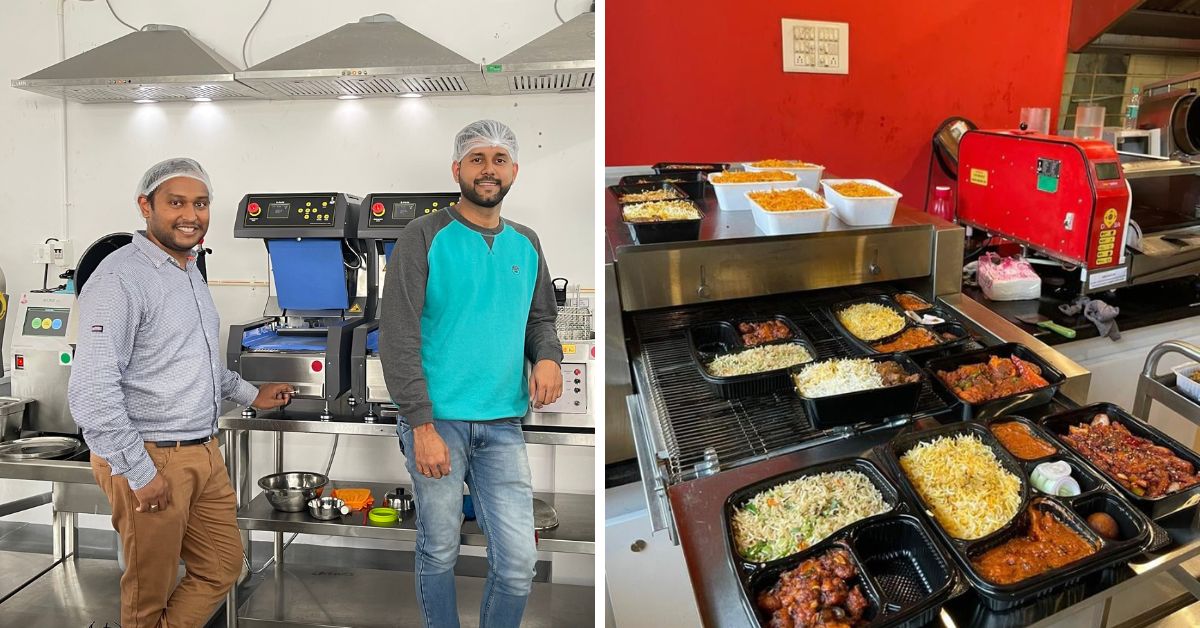
A robotics and automated kitchen venture in Bengaluru has been mastering lip-smacking recipes and standardising quality.
Mukunda Foods, a kitchen automation and robotics company, was started by classmates Eshwar K Vikas and Sudeep Sabat in 2009.
While studying engineering in Chennai, Eshwar would visit all the popular and offbeat food spots in the city. His roommate Sudeep, who hails from Odisha, also enjoyed the South Indian food, especially dosa.
Based on their shared interest of relishing good food, they dreamt of owning a restaurant chain which serves South Indian food across the globe. But the Quick Service Restaurant (QSR), which was started in 2013, faced hurdles like inconsistency in its outlets, which in turn affected its customer base.
That was the time when the duo realised the importance of kitchen automation. Thus, Mukunda Foods changed its model from a QSR to a food automation company in 2014.
From dosa to momos
It took four years for the company to come up with their first product – Dosamatic, which makes crispy golden brown dosas from scratch without external interference. All you have to do is switch on a button.
The machine can make up to 50 dosas per hour. It makes multiple dosas at the same time and cleans itself. The company has sold over 1,000 machines so far, to a wide customer base in over 22 countries including the US and UK, the Rashtrapati Bhavan and INS Jyoti naval ship.
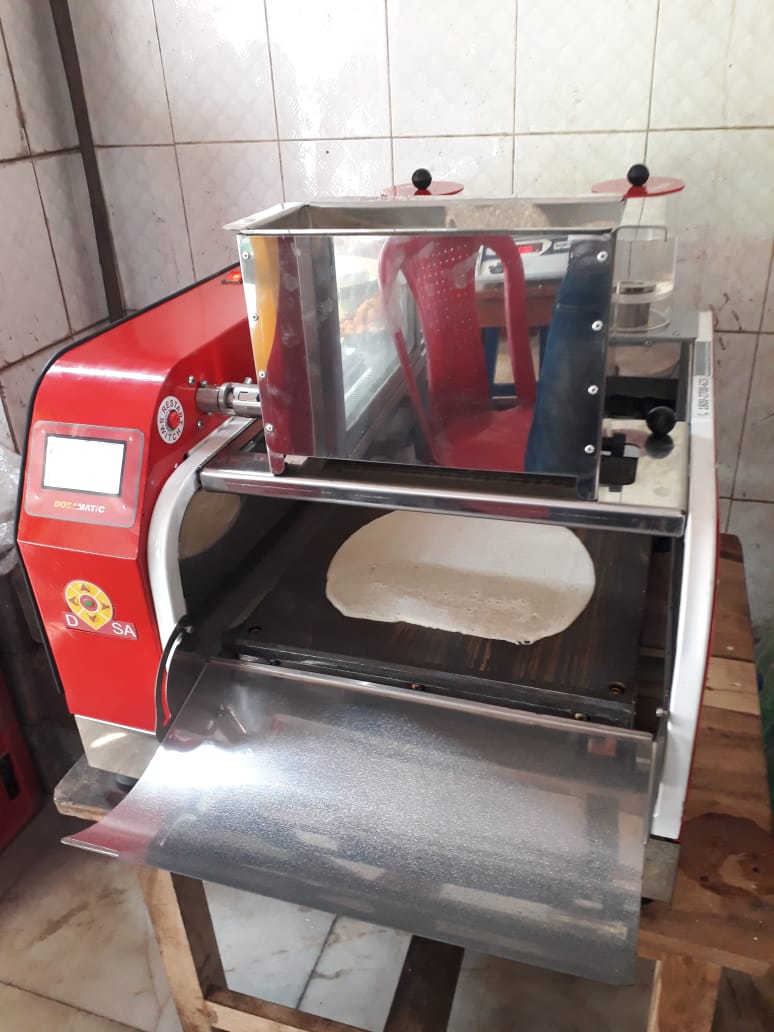
“To manufacture the machine, we first sought help from a group of chefs who explained the ingredients, consistency, temperature and all related matters. We incorporated each of their suggestions to make a customisable machine which can make not just dosa but any batter-based food items,” says Eshwar, the CEO and co-founder of the company.
As the dosamatic machine reached a wide number of customers, majorly B2Bs, the team started receiving requests for manufacturing other machines to make samosas, momos, gravies, french fries, burgers and more.
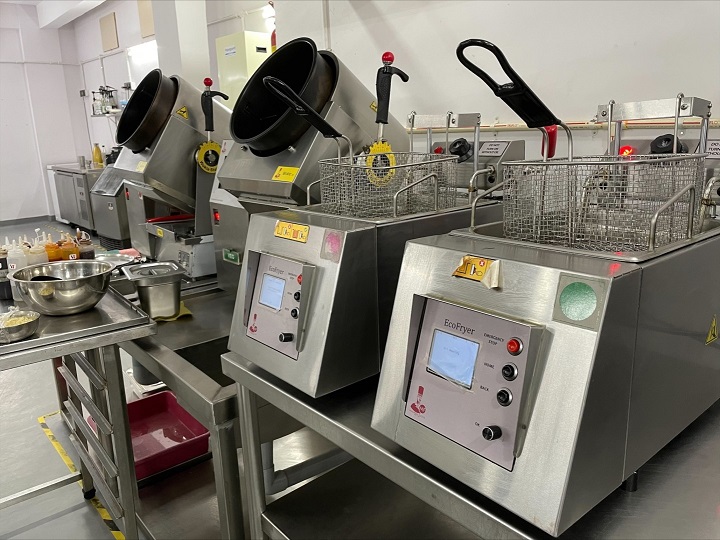
Mukunda Foods has manufactured three more machines: Wokie, the automatic wok used for Chinese food, Indian and Thai gravies; Rico, the automatic rice, noodle and pasta-maker; and Eco-fryer, used for frying french fries, momos, samosas, and burger patties in less oil.
Another addition to the list is the E-pan that helps regenerate frozen, pan-baked, fresh food items like flatbreads, kebabs and patties in their original taste.
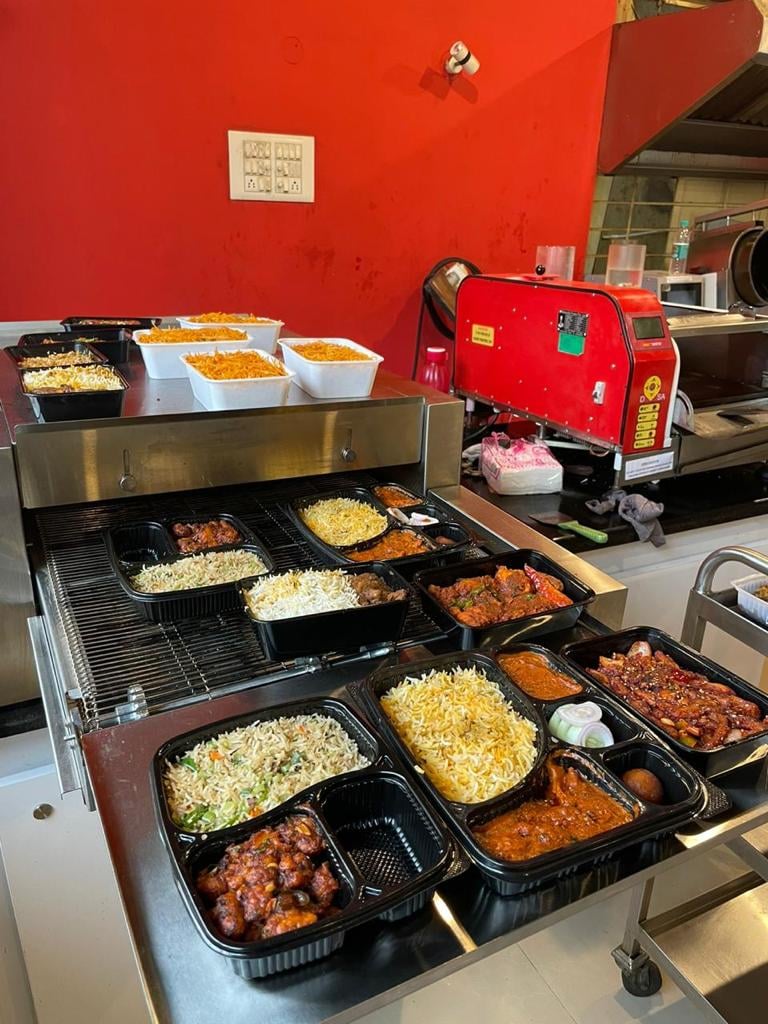
“We have a list of over 3,000 customers today including giants like ITC, Ola Foods, Wow! Momo, Good Flipping Burger, Biggies Burger, Carnival, Samosa Party, Chaayos, Rebel Foods and more. A few months back, food delivery company Zomato acquired a 16.66 per cent stake in our company,” says Sudeep, the COO and co-founder of Mukunda Foods.
The company has also onboarded Ramchander Raman as co-founder and Rakesh Patil, as CTO, along with 150 full-time employees.
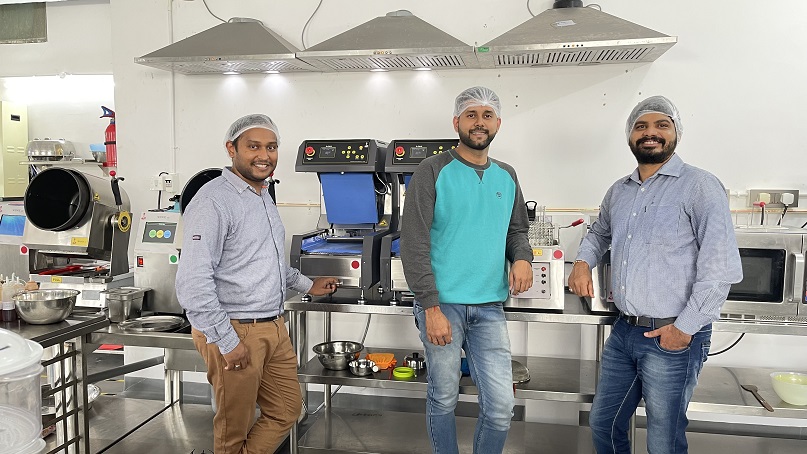
“We are making machines smart by employing Artificial Intelligence (AI) and Machine Intelligence (MI) technology, which help our customers to save time, money, and energy. For example, in the case of Wokie, the machine captures an image of each ingredient, weighs them with the pre-loaded recipe and alerts the operator in case of changes. It can also read the instructions provided by the customer like less or more spicy, and automatically customises the given recipe,” explains Eshwar.
For the ease of usage of the clients, multiple Android applications are provided to create new recipes, remotely monitor machines and request services.
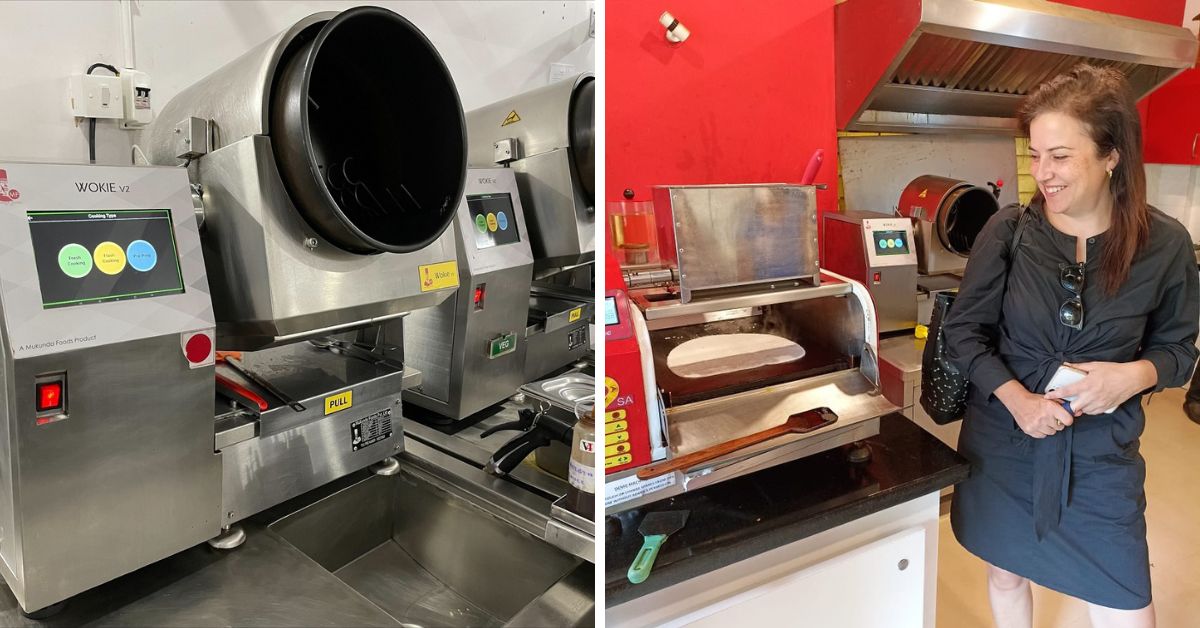
The price of these machines ranges from Rs 40,000 to Rs 2,00,00. The company ships close to 350 machines every quarter.
“Our best-seller is Wokie, as it is capable of making several cuisines. To date, we have automated more than 14 processes, which are cuisine-specific and problem-solving in nature. The biggest advantage that most of our clients including cloud kitchens, fine-dining restaurants, QSRs and hotels tell us is that the machine does the job 3 – 4 times faster than manual labour,” claims Eshwar. If you found our stories insightful, informative, or even just enjoyable, we invite you to consider making a voluntary payment to support the work we do at The Better India. Your contribution helps us continue producing quality content that educates, inspires, and drives positive change. Choose one of the payment options below for your contribution- By paying for the stories you value, you directly contribute to sustaining our efforts focused on making a difference in the world. Together, let’s ensure that impactful stories continue to be told and shared, enriching lives and communities alike. Thank you for your support. Here are some frequently asked questions you might find helpful to know why you are contributing?

He adds, “We have a bigger aim of automating all kitchens of the country now. Given that there are more than 35 lakh food outlets here, we have barely touched the tip. In the upcoming years, we hope to develop new machines to cook several other varieties of food. Additionally, getting into the international market and spreading the glory of Indian food is our biggest dream.”
Edited by Yoshita Rao; Photo credits: Iti Dubey
This story made me
-
97
-
121
-
89
-
167














